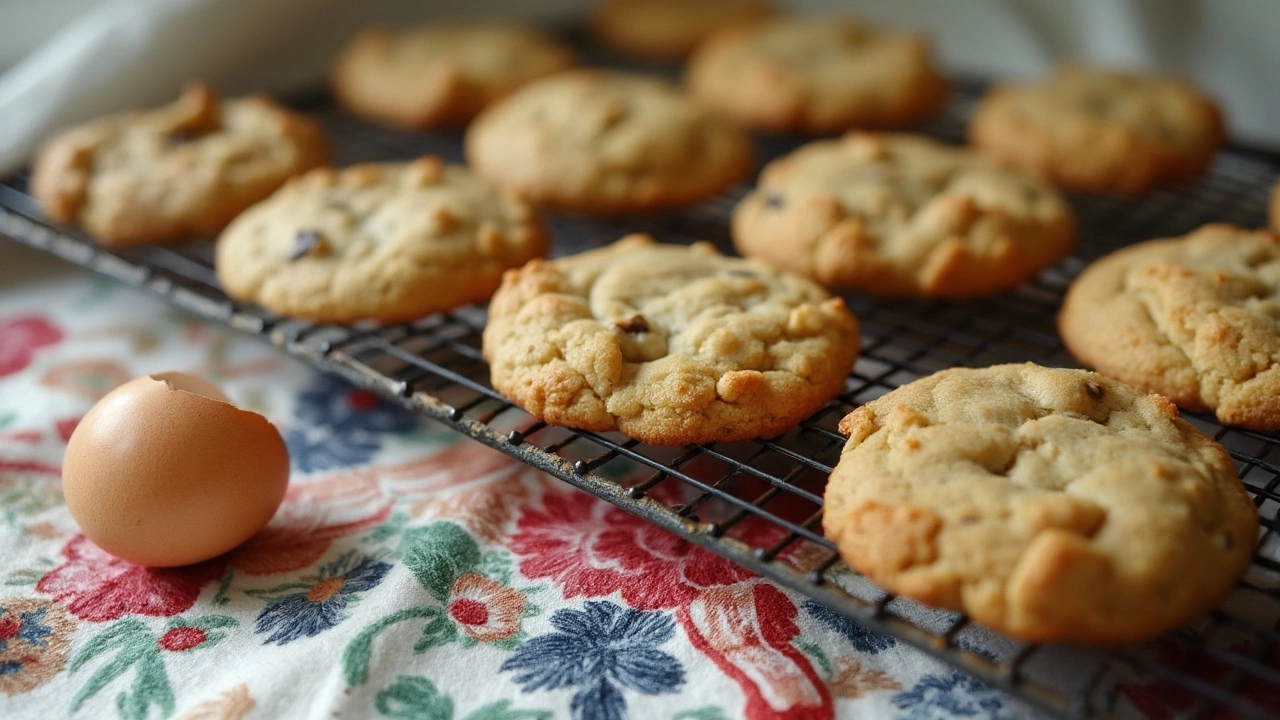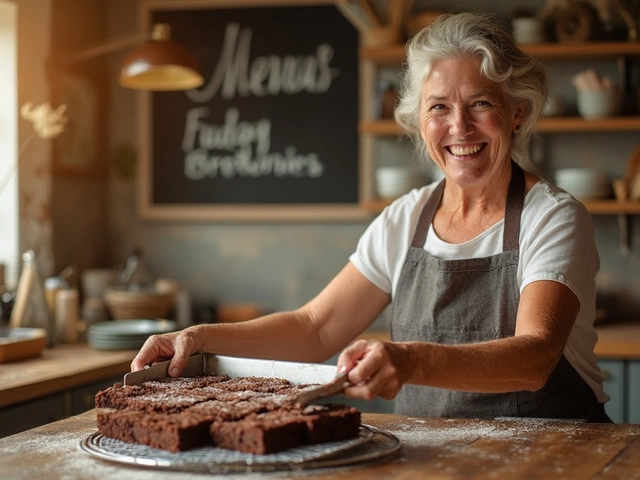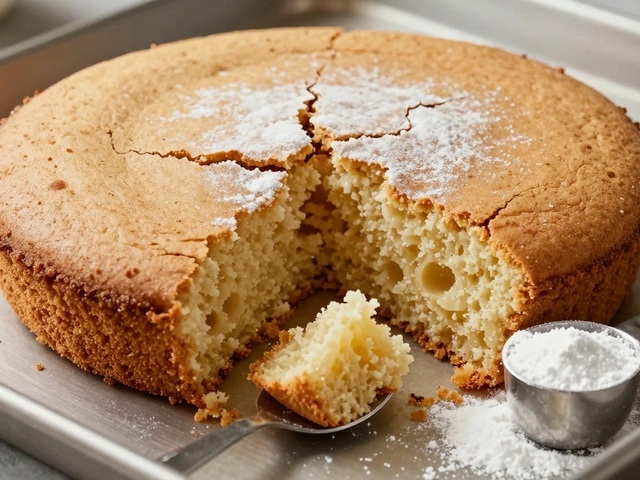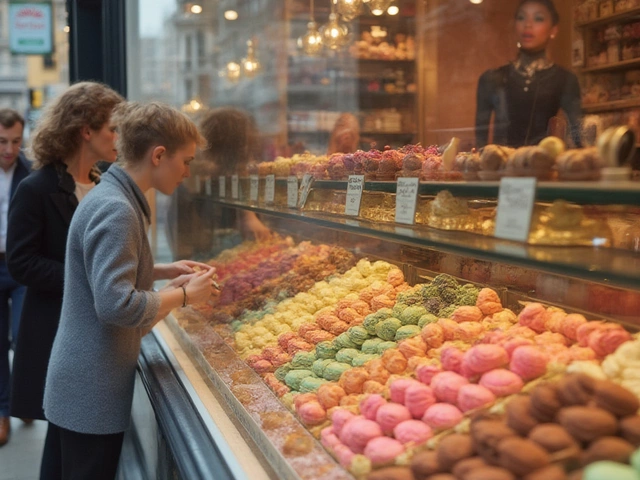
So, you’ve got your cookie recipe down pat, and now you’re wondering what happens if you just toss one more egg into the mix. Could such a tiny change really make a difference? Turns out, it can! Eggs are like the little architects of your cookie's structure. They're responsible for the texture and binding, which means adding an extra egg shifts things around quite a bit.
If you’re after softer, more cake-like cookies, an extra egg is the way to go. The moisture from the egg helps create a tender crumb that melts in your mouth. But beware; this might come at the cost of those beloved crispy edges. More egg equals more moisture, which means those edges might not crisp up as usual.
For those of you aiming for chewy cookies loaded with gooey joy, that extra egg helps. It introduces more proteins and uninterrupted bonding, leading to a thicker, chewy delight. But, be careful not to overbake as they might swell a little more in the oven.
- The Science of Eggs in Baking
- Texture Transformations
- Flavor and Color Changes
- Tips for the Perfect Cookie with Extra Egg
The Science of Eggs in Baking
Ever wonder why cookies turn out differently every time based on tiny ingredient adjustments? When it comes to eggs, there's a fascinating science behind their contribution to baking. Eggs are responsible for binding ingredients together, providing structure, and adding moisture. They're like the unsung heroes of your cookie recipe.
Role of Eggs in Texture
The whites of the egg are primarily made up of proteins and water. When you mix them, they unravel and link with the other ingredients. This forms a stretchy network, giving your cookie a specific bite. On the other hand, egg yolks are rich in fats, which help in giving that smooth, tender texture to a cookie. So, if you add an extra egg, you're introducing more of these proteins and fats.
Eggs and Cookie Spread
Ever baked cookies that spread too thin? Eggs can influence this too. More eggs often mean a thicker dough, which can slow down the spread in the oven. This can give you denser cookies that stay more in place, rather than turning into cookie pancakes!
Moisture and Flavor Impact
The additional egg adds more moisture and can lead to a richer flavor profile. This is primarily due to the yolk, which contains those fatty compounds. It's the reason why a batch with an extra egg might taste slightly more buttery, even if you didn't change the butter measurement.
Nutritional Contribution
| Nutrient | Per Egg |
|---|---|
| Calories | 70 |
| Protein | 6 grams |
| Fat | 5 grams |
| Cholesterol | 185 mg |
Eggs don't just bring texture and flavor - they pack nutritional benefits too. With approximately 70 calories and 6 grams of protein per egg, you're not just enriching your cookies but maybe sneaking in some nutrition as well.
So the next time you bake and consider adding an extra egg, remember you're not only tweaking a recipe but getting down to a delicious science. It's all about balance, knowing how that small change impacts the big picture.
Texture Transformations
What happens when you throw an extra egg into your cookie dough? The first thing you might notice is a solid shift in texture. Eggs play a critical role in your baking by locking moisture and structure, making them front-liners in cookie chemistry.
From Crunchy to Chewy
The most significant change is the shift from crunchy to a more chewy texture. A cookie with an extra egg becomes chewy due to the egg’s proteins and fats, which help develop gluten while adding moisture. Conversely, fewer eggs might make them drier and crunchier, especially if you go heavy with the sugar.
Cake-like Crumb
More eggs can also mean a cake-like crumb. If you add one more egg, the dough holds more moisture, which translates into a softer and more tender inside. It's all about the balance between flour and eggs; getting it just right means you can tailor the texture to your liking.
It's All in the Details
You might wonder how many eggs are too many. A general rule of thumb is that one extra egg per standard batch is usually okay. But if you get too egg-cited and add more than that, the texture might become too sticky and soft, veering away from what makes cookies delicious in the first place.
In summary, while that additional egg can give you a delicious new twist on your usual cookie recipe, it changes the dough's anatomy. Playing around a little with this simple ingredient can offer a wide range of interesting textures, making your baking experiments quite an adventure!

Flavor and Color Changes
Here's the scoop on what an extra egg can do for the flavor and color of your cookies. While it won't dramatically change the taste like switching up your extract flavors might, it will add a touch of richness. This is because egg yolks are naturally fatty and can enhance the overall depth of flavor in your homemade cookies.
Richness and Taste
Adding an extra yolk boosts the buttery flavor, without needing to increase the actual butter content. This subtle change often results in cookies that taste a tad more luxurious. Some bakers even find that it rounds out sweetness, making the cookies taste well-balanced.
Appearance and Browning
An extra egg can also alter the appearance of your cookies. Egg proteins are key players in browning. They interact with sugars to achieve that lovely golden color through something called the Maillard reaction. In layman's terms, more eggs often speed this up, giving you cookies that might look more appealingly golden brown.
If you opt for a recipe with an extra egg, keep an eye on the baking time. The potential for faster browning might mean adjusting your oven temp a notch or pulling the batch out a minute earlier.
Color Consistency
Okay, so you've got your good-looking golden cookies. But what about when you're making multiple batches? Adding that extra egg helps maintain a consistent color because it stabilizes how moisture distributes during baking. This means your first and last batch will likely look the same—a plus if you're baking for a crowd or gifts!
In short, introducing an extra egg affects both flavor and color, making the cookies richer and more uniformly golden. It's one small change that leads to a noticeable tweak in your cookie game!
Tips for the Perfect Cookie with Extra Egg
Adding an extra egg seems like a small change, but it can transform your cookies from ordinary to amazing. Here are some solid tips to ensure you get the best results with that additional ingredient.
1. Choose the Right Flour
With more moisture from the extra egg, you'll want a flour that can handle it. Opt for all-purpose flour to balance the extra liquid without making cookies too soft.
2. Chill Your Dough
If you want that perfect cookie shape, chilling the dough is key. This prevents spreading too much in the oven. Just toss it in the fridge for about 30 minutes before baking.
3. Keep an Eye on Baking Time
With an extra egg, cookies might need a little less time in the oven. Start checking a minute or two earlier than the recipe suggests to avoid overbaking.
4. Experiment with Add-ins
Don't be afraid to mix in some fun extras like chocolate chips or nuts. The extra egg will help hold those mix-ins, giving you a well-distributed bite every time.
5. Watch Out for Salt
The process of enhancing flavor with an extra egg can sometimes call for a pinch more salt. Taste your raw dough – safely of course – and make sure the balance feels right.
| Tip | Adjustments |
|---|---|
| Using Large Eggs | Try one extra-large egg if you're seeking even more moisture. |
| High Altitude Baking | Consider reducing the baking powder slightly to accommodate for more moisture. |
Baking with an extra egg is like giving your cookie recipe a new life. With these simple tips, you'll be on your way to achieving the cookie perfection you crave!












Write a comment